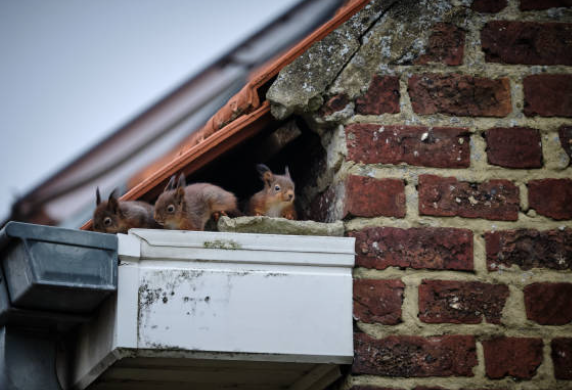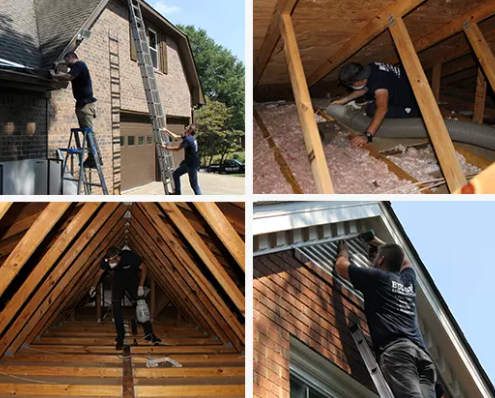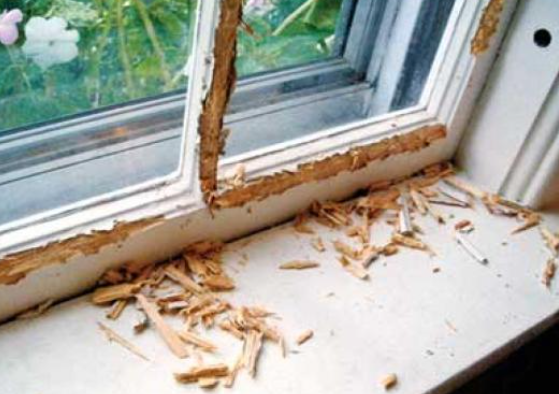Can Squirrels Cause Structural Damage
- tamash0
- Sep 3, 2023
- 5 min read
Squirrels, those agile little creatures with their bushy tails and adorable antics, may seem harmless at first glance. However, don't be fooled by their cute appearance! These furry critters can actually cause significant structural damage to our homes. Can squirrels cause structural damage?
In this article, we will explore the various ways in which squirrels can wreak havoc on our dwellings and why it's important to address these issues promptly.
When squirrels make their way into our attics, they can turn our homes into their personal playgrounds. From chewing on electrical wires to gnawing on wooden beams, these persistent creatures can cause extensive damage that goes beyond mere nuisance.
Their incessant scratching and scurrying can also disrupt our peace and tranquility, making it difficult to enjoy a quiet evening or a good night's sleep. Therefore, it is crucial to understand the potential risks posed by squirrels and take proactive measures to prevent and address any structural damage they may cause.
What damage can squirrels do in the attic
Oh boy, you won't believe the havoc those little furry creatures can wreak in your attic! Squirrels can cause a plethora of problems in this seemingly harmless space.
Firstly, they love to chew. And by chew, I mean they'll happily gnaw on anything they can get their teeth on. From electrical wires to wooden beams, squirrels have no discrimination when it comes to satisfying their chewing urges. This poses a serious fire hazard as damaged wires can easily spark and ignite a fire.
Not to mention, their constant chewing can weaken the structural integrity of your attic, leading to costly repairs down the line.
Additionally, squirrels are notorious for their nesting habits. They'll gather an assortment of materials, such as leaves, twigs, and insulation, to build their nests. While this may seem harmless, these nests can quickly accumulate and cause blockages in your attic's ventilation system. This can lead to poor air circulation, trapping moisture and causing mold growth.
Furthermore, squirrel droppings and urine can create a foul odor and attract other pests, such as insects and rodents, further exacerbating the damage to your attic.
All in all, squirrel damage in the attic shouldn't be taken lightly. From their destructive chewing habits to their nesting tendencies, these critters can wreak havoc on your attic's structural integrity and overall cleanliness.
Now that we've explored the damage they can cause in the attic let's move on to the next section about squirrel damage to homes.
Squirrel Damage to Homes
Homeowners may be surprised to discover the havoc these furry creatures can wreak on their properties. Squirrels, with their sharp teeth and strong jaws, can cause significant damage to homes.
Here are some ways in which squirrels can damage homes:
- Chewing: Squirrels have a natural instinct to chew on objects to keep their teeth sharp and healthy. Unfortunately, this can lead them to chew on electrical wires, wooden beams, and insulation in homes. This can not only cause structural damage but also pose a fire hazard.
- Nesting: Squirrels often seek shelter in attics and crawl spaces to build their nests. In the process, they can tear apart insulation, chew through walls, and damage vents. This can compromise the integrity of the home's structure and insulation.
- Contamination: Squirrels are not the cleanest of creatures, and their presence in homes can lead to the accumulation of droppings, urine, and debris. This can result in unpleasant odours and the spread of diseases.
- Roof Damage: Squirrels are skilled climbers and can easily access roofs. Once on the roof, they may chew on shingles, vents, and gutters, leading to leaks and water damage.
- Garden Destruction: Squirrels are notorious for raiding gardens and digging up flower beds. While this may not directly damage the home's structure, it can be frustrating for homeowners who've put time and effort into creating a beautiful outdoor space.
It's essential for homeowners to address squirrel damage promptly to prevent further deterioration of their homes. Seeking professional help from pest control experts can help safely remove squirrels from homes and implement measures to prevent their return.
Frequently Asked Questions
How do squirrels gain access to the attic?
Squirrels can access attics through small gaps or openings in the roof, vents, or soffits. They are excellent climbers and can jump from nearby trees or branches onto the roof, allowing them to easily gain entry.
Can squirrels chew through electrical wiring?
Yes, squirrels can chew through electrical wiring. They have sharp teeth and gnaw on various materials, including wires. This can lead to electrical malfunctions, fires, and potential damage to your home.
Are there any signs of squirrel damage that homeowners can look out for?
Sure! Homeowners can keep an eye out for signs like chewed wood, holes in the roof or siding, and gnaw marks on outdoor furniture. These can indicate squirrel damage and the need for repairs.
Do squirrels cause damage to insulation in the attic?
Yes, squirrels can cause damage to insulation in the attic. They may chew through the insulation, causing it to lose its effectiveness in insulating the home. This can lead to higher energy costs.
Can squirrels cause structural damage to the roof or walls of a home?
Yes, squirrels can cause structural damage to a home. They can chew through roofing materials, siding, and even wooden beams. It's important to address squirrel infestations promptly to prevent further damage to the roof or walls.
Conclusion
In conclusion, squirrels can cause significant structural damage to homes, particularly when they reside in the attic. These small, seemingly harmless creatures can wreak havoc on the integrity of a building, chewing through insulation, electrical wires, and even wooden beams. Read out about what to do if you slept in a bed with bed bugs.
Their constant gnawing and nesting habits can lead to costly repairs and pose a potential fire hazard. With A1 Pest Master at the helm, your pest problems are in capable hands, as they bring unmatched skill and dedication to every pest control task they undertake. Call us at (312) 647-2630.
Not only do squirrels cause physical harm to our homes, but they also disrupt our peace of mind. The incessant scratching and scurrying sounds coming from above can be incredibly unnerving, especially when they disturb our sleep or create a constant distraction.
It's as if a tiny army of mischievous rodents has taken over our sanctuary, wreaking havoc and leaving chaos in their wake.
But fear not, for there are ways to prevent and mitigate squirrel damage. By sealing all potential entry points, trimming trees that provide easy access to the roof, and employing deterrent tactics, such as noise-making devices or predator decoys, we can protect our homes from these furry invaders.
Let us not underestimate the destructive power of these seemingly innocent creatures, for their impact on our homes and our peace of mind can be nothing short of cataclysmic.










Komentarze